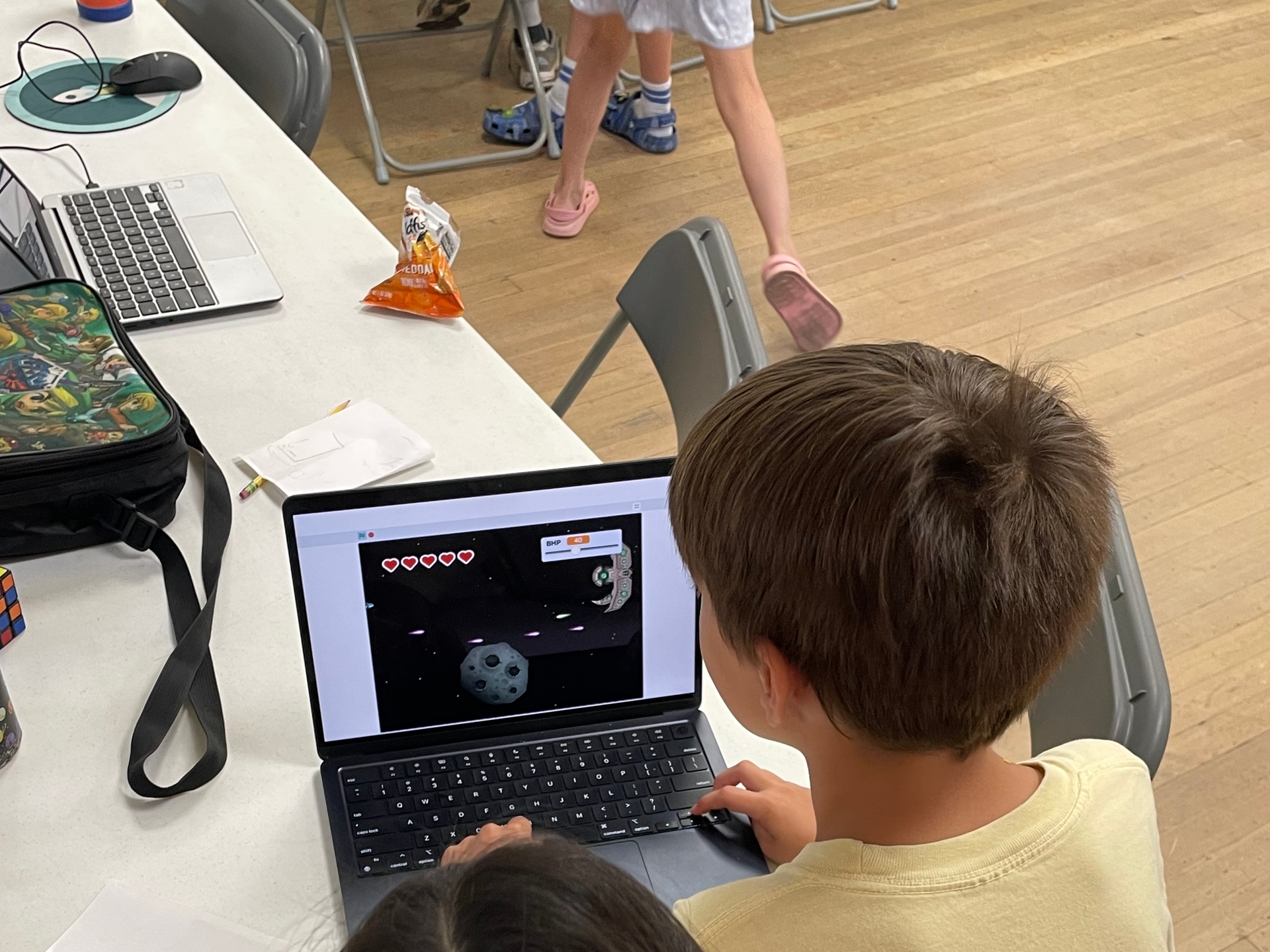The Coding Space Curriculum Deep Dive

Understanding Project-Based Learning, Untutorials, and Creative Projects
At The Coding Space, our mission is to empower people to tackle challenges independently through learning to code. In doing so, we aim to develop their problem-solving, critical thinking, learning skills, confidence, attitudes, and mindsets. Below are a few key tools and tactics we use to accomplish our mission.
The project-based, “learning-by-making” classroom
“Learning is most effective when part of an activity the learner experiences as constructing a meaningful product.” - Seymour Papert
The Coding Space's project-based, “learning-by-making” classroom style provides a space for students to develop and practice real-life learning strategies by building meaningful projects. In this way, learning is highly motivated, relevant, and memorable. Most important, it gives students the confidence that they can learn as they go.
Our “learning-by-making” system reinforces in students that there are no wrong answers, but only stepping stones towards better ones. While working on their projects, students must try many different things out in order to figure out what works. Often times, it’s impossible to make something work perfectly on the first try. Instead of teaching students that there is only one right answer for each question and that a second attempt equates with failure, we train our students to fearlessly iterate and tinker with their problems. If their first attempt doesn’t work, no problem. It just means they’re one step closer to finding something that does.
One of the most important things that our students learn through our class format is that learning can be ridiculously fun! Because our students aren’t afraid to be wrong, get to jam on projects with their peers, and work with their teachers but not under them, they are very likely to genuinely enjoy their education.
Our project-based model also teaches that there are no hard lines between different subjects. Our students certainly learn a great deal about coding and game design, but every project that they work on demands them to think beyond these two elements. Students learn about English by making a bot that talks to them, answers their questions, and reacts to what they say. They learn principles of physics by modeling gravity in games. They learn math by using functions, variables, and algorithms. They practice their art, design, and creative thinking skills by making backdrops and characters. Every project stretches them to think interdisciplinarily, often requiring the use of every single traditional school subject. This not only gives them access to a variety of material, but also instills in them the important belief that all the different parts of their education truly do work together.
Untutorials
“The goal of a flying instructor is to impart enough in dual mode to enable the student to fly alone successfully in solo mode.” - T. A. Dwyer
At The Coding Space, our ultimate goal is to create self-sufficient learners, critical thinkers, and problem-solvers. However, our classes offer a variety of scaffolds, or temporary instructional support, that allow students to develop their skills in “dual mode” with the eventual goal of graduating them to “solo mode,” where they need less and less of our curricular guide rails.
Untutorials are one of our main “dual mode” scaffolds for teaching students who are new to coding. Untutorials list the high-level tasks or features students need to complete the project, but leave out how to do them. Students figure out the rest via tinkering, googling, asking a friend, and iterating towards a solution, all while developing deep insights and intuition of high-level concepts.
This is an example of one of our beginner untutorials. You can start by playing the game to see the finished product. Then you can open Scratch in another window and figure out how to make each feature. Don’t worry if you have questions or get stuck! That’s why we offer classes with trained teachers.
Creative projects
“The best time to learn anything is when whatever is to be learned is immediately useful to us.” - Goodwin Watson
After a number of untutorials in “dual mode,” students are given the opportunity to participate in Creative Projects in “solo mode.” These are open-ended projects that allow students to combine all the skills they’ve learned throughout a sequence of untutorials. Creative projects allow students to practice what they’ve learned and reinforce their knowledge, and most importantly, express themselves!
Interested in having your child try one of our classes? Browse our schedule here.